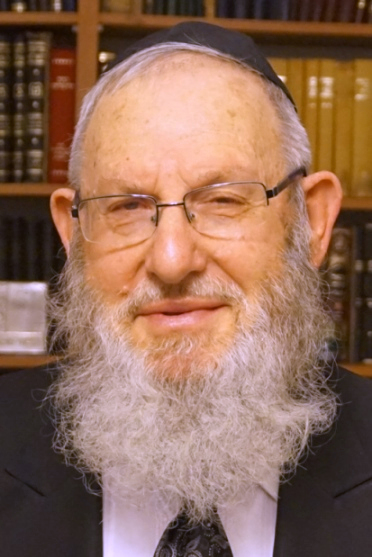ושמחת בכל הטוב
By: Rabbi Dani Zuckerman
As we depart from חג השבועות and enter the summer, we have an opportunity to contemplate a special aspect of this new season.
The very first of a farmer’s obligations upon the growth of a new season’s crops is to designate the first of those crops as bikkurim, which he will bring to the beis hamikdash. There are two aspects to bikkurim (perhaps even two distinct mitzvos); הבאת ביכורים- bringing the bikkurim to the beis hamikdash, and מקרא ביכורים- reciting the parsha of ארמי אובד אבי upon arrival there.
The general principle of זריזין מקדימין למצוות would lead one to assume that, ideally, bikkurim should be brought to the beis hamikdash as soon as they have grown. However, the Mishna (Bikkurim 1:6) dictates that this is not the case, rather one may only do הבאת ומקרא ביכורים between Shavuos and Sukkos.
The gemara (Pesachim 36b) explains that this is based on a drasha from the final passuk of ארמי אובד אבי:
ושמחת בכל הטוב- ההוא לזמן שמחה הוא דאתא, דתנן: מעצרת ועד החג מביא וקורא, מהחג ועד חנוכה מביא ואינו קורא
What about the season between Shavuos and Sukkos makes it a unique time of ושמחת בכל הטוב?
Rashi explains:
זמן שמחה- בזמן קצירה ולקיטה שאדם לוקט תבואתו ולבו שמח...ושמח במעשיו
The harvest season is marked by the special satisfaction one feels upon reaping the rewards of effort and hard work.
To clarify the implications of this drasha, let us imagine what would be if the Torah allowed us to bring bikkurim at the first opportunity. A farmer would go out to his field at some point in the spring, see his produce budding and mark off the bikkurim. Not long after, those initial fruits will be ready to bring to Yerushalaim. He takes a few days off from work, brings his produce to the beis hamikdash, then goes back home to oversee the final stretches of the growing season. A month or two later, when the growing season is finally over and he has transitioned to harvesting and gathering his fruits, the farmer feels a tremendous satisfaction upon the conclusion of an arduous but ultimately profitable months-long endeavor.
In this alternate reality, הבאת ומקרא ביכורים would serve as a tribute of sorts, and a necessary obligation to discharge before one could rejoice in the fruits of his labors.
However, the drasha derived from ושמחת בכל הטוב transforms הבאת ומקרא ביכורים into so much more. By commanding us to wait until the harvest season- with its attendant satisfaction- commences, the Torah is telling us to not only to bring bikkurim and recite its parsha, but to redeem and channel that satisfaction into a particular mode of rejoicing:
ושמחת בכל הטוב אשר נתן לך ה' אלקיך ולביתך, אתה והלוי והגר אשר בקרבך
Take all of your understandable satisfaction, legitimate pride at seeing the fruits of your labors, and 1) recognize that Hashem has provided you with that goodness and 2) share it with the less fortunate around you.
Both here and elsewhere, the Torah articulates a particularly balanced view of man’s initiative coupled with his reliance on Hashem. On the one hand, the period between Shavuos and Sukkos is a זמן שמחה because man is שמח במעשיו. On the other hand, we are specifically commanded to wait until that point to bring bikkurim and recognize that Hashem is the source of our bounty.
The Ran (דרשות הר"ן ריש הדרוש העשירי) notes a similar balance in Parshas Eikev (8:17-18):
ואמרת בלבבך כחי ועצם ידי עשה לי את החיל הזה: וזכרת את ה' אלקיך כי הוא הנתן לך כח לעשות חיל
It is of course egotistical and false for one to attribute his success solely to his own abilities. We must humbly remember that it is Hashem who gives us those abilities. However, the Ran notes that this humility does not imply complete self-abnegation.
עם היות שהכח ההוא נטוע בך, זכור תזכור שהכח ההוא מי נתנו אליך ומאין בא...לא אמר "וזכרת את ה' אלקיך כי הוא נותן לך החיל”...ולפיכך אמר: כי עם היות שכוחך עושה את החיל הזה, תזכור נותן הכח ההוא יתברך.
Hakadosh Baruch Hu does not want us to deny our own abilities, but to utilize them- לעשות חיל- as best as we can. Therefore, when we achieve our goals, we won’t say, “Hashem gave me this wealth (or job, family, health etc.)” but rather “Hashem gave me the ability to work for this wealth etc.”
Delaying הבאת ומקרא ביכורים orients the one bringing bikkurim to view his relationship with Hakadosh Baruch Hu as a partnership of sorts. Hashem invests abilities in the farmer, and the farmer, in return, acknowledges that all of his accomplishments are due to his God-given abilities.
The timing of bikkurim teaches a fundamental principle not only for farmers, but for all of us who invest kochos and take satisfaction in surveying the fruits of our labors. Summertime is particularly associated with this middah, whether due to the harvest, the end of yeshiva zmanim and school terms, or even just a slower pace of life. At this time, as we reflect on the academic or professional year gone by, it is worthwhile to take satisfaction in the fruits of our labors, reflect on Hashem’s role in providing us the abilities that we have, and rejoice in all the good he gives us.
Shiur ID: 9156
Do you have a comment or question on the shiur?
Comment below and we'll join the discussion
Add your comments:

.jpg)

.jpg)


 (1).jpg)